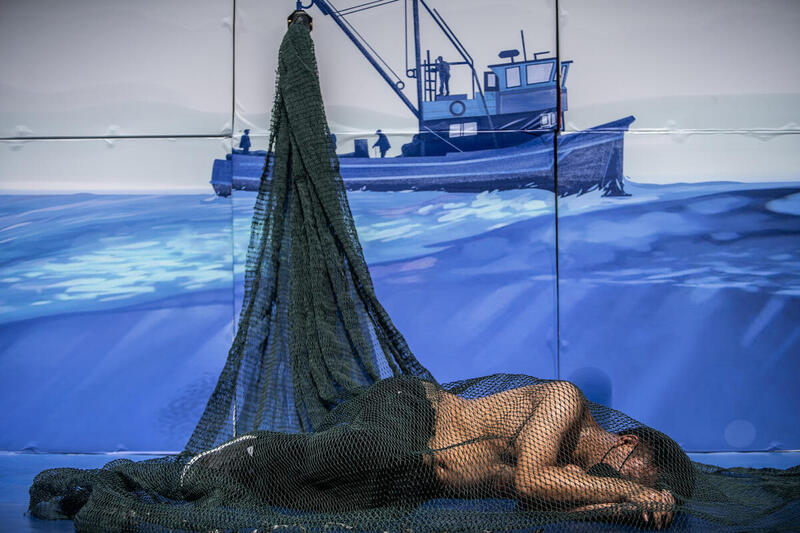In the middle of my five week trip in August on the Greenpeace ship, Rainbow Warrior, for a fisheries investigation in the North Pacific, my mother told me over the phone that my cat was behaving strangely (I promise this will be relevant to the story).
My cat, Tammy, showed some symptoms of distress, which allegedly were caused by separation anxiety. She refused to eat, did not use her litter box properly, and was not as cheerful as before. But then, thanks to the 24/7 internet connection on the ship, I started to call home more often to tell Tammy, "Mom will be home soon!". Long story short, she got better.
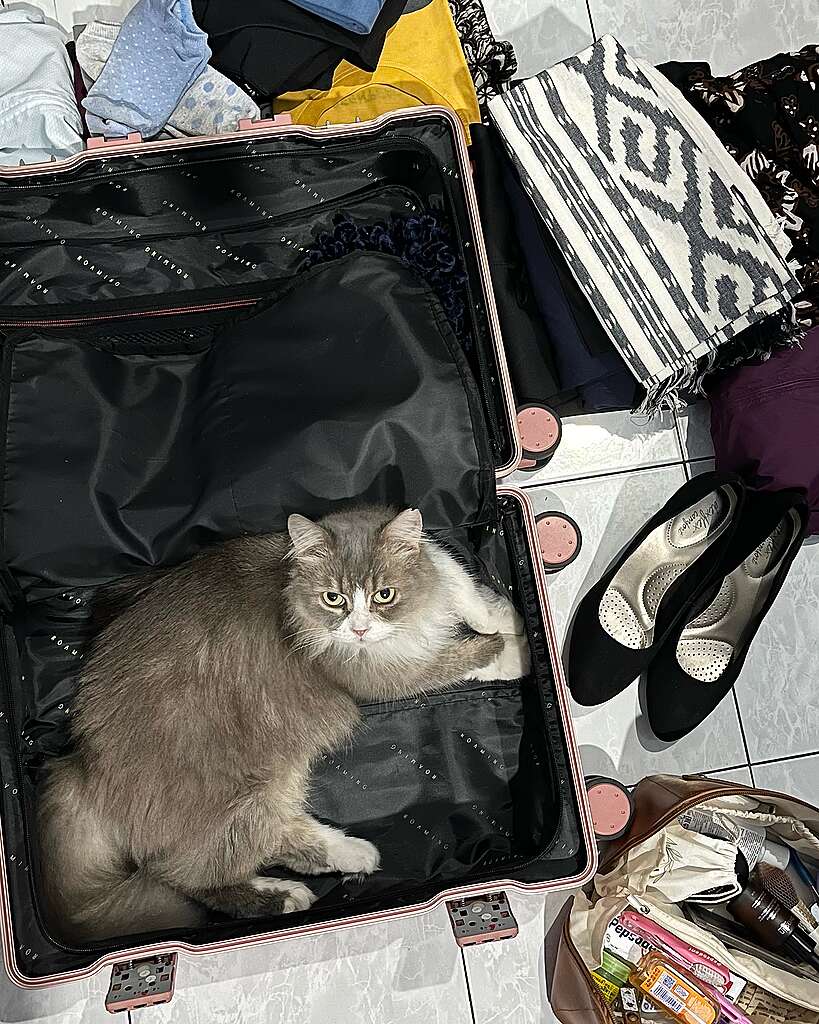
Being away from loved ones isn't easy for anyone. What happened to me was a tiny taste of what fishing workers and their families have to go through when they are separated. While I was able to call home, most fishers are completely isolated from the outside world during their time at sea. More than just missing each other, for many it could feel like a matter of life and death.
Why-Fi? Because connectivity at sea is more important that you realise.
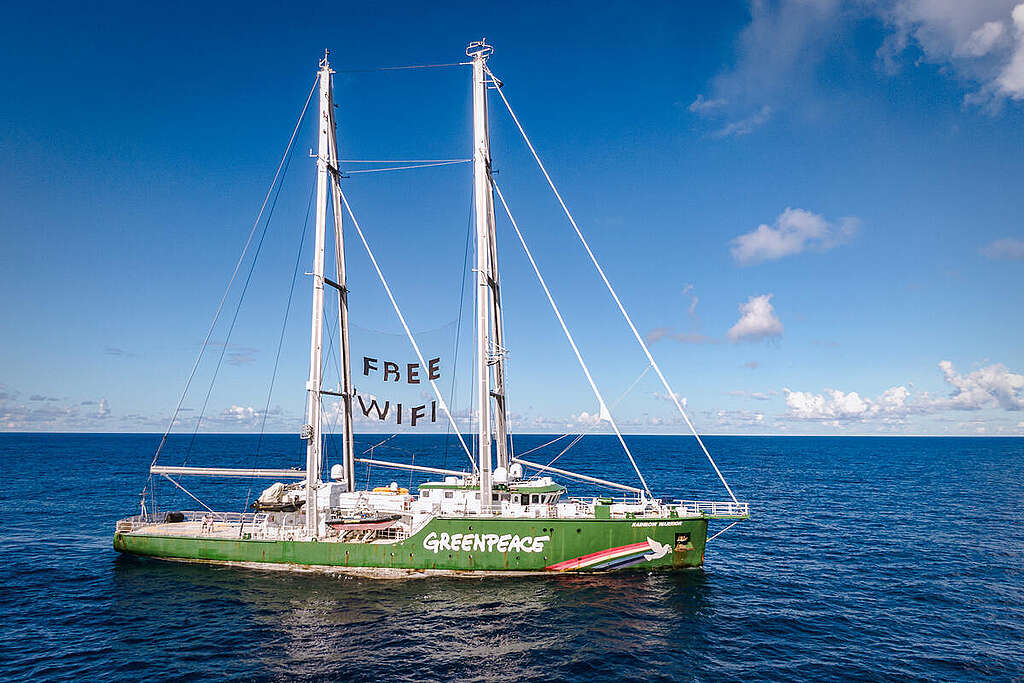
Throughout our investigation, we interacted with nine Taiwanese fishing vessels and shared Wi-Fi with six of them. A total of 45 fishers were connected to the internet. Within those brief moments of Wi-Fi sharing, their faces were glued to their phones, happily video-calling with their partners, children, parents, or friends. Their connections were mostly cut short, not longer than 30 minutes, because the captains decided to move off and continue fishing.
But, why is Wi-Fi so important? Let me share more about that through the stories of some of the fishers that we met.

When "Rahman" (not his real name) left Indonesia three years ago, his wife was four-months pregnant. He became a fisher on a Taiwanese longliner and was tied to a three-year contract, with each trip consisting of three months of fishing and one month of rest on the coast in Taiwan.
Although he could contact his family whenever he was on shore leave, when the time came for his baby to be born, Rahman could only receive occasional updates, which was really hard for him as a father. He couldn't make any contact whilst he was working at sea because the ship where he worked did not have Wi-Fi.
When we met him in August, he was on his last fishing trip and would soon return to Indonesia. "I will be home next month. I can't wait to meet my child!" he said with the widest smile on his face.
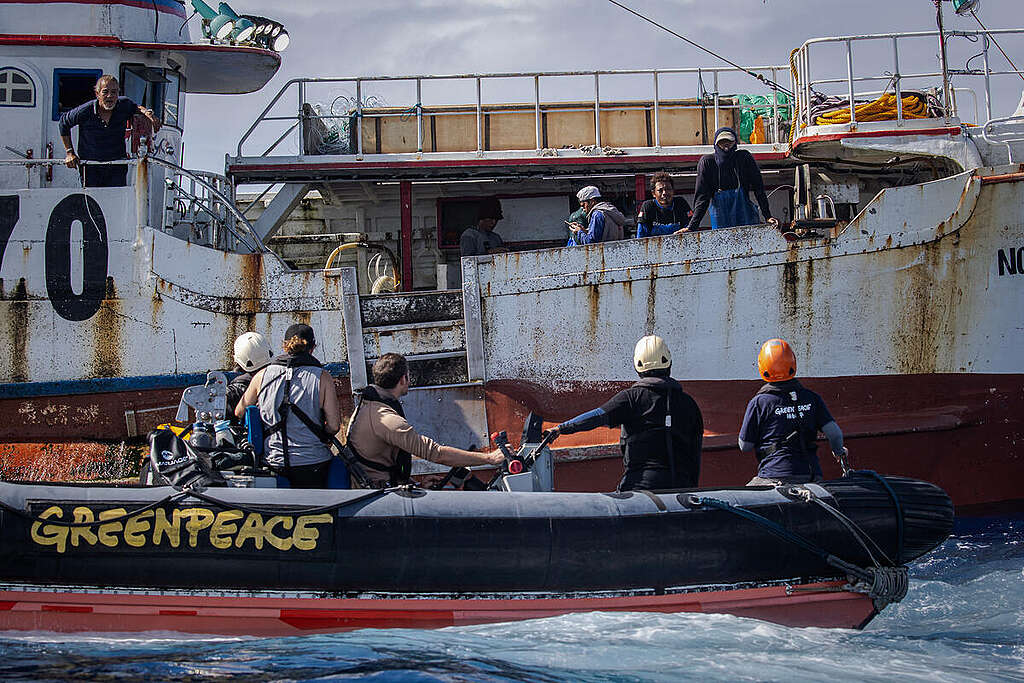
In another interaction with a different vessel, we met "Anto", also a pseudonym. It was around 8AM in that part of the ocean and he was connected to the free Wi-Fi from the Rainbow Warrior.
"Is the Wi-Fi working?" he asked.
"Yes, why?" I replied.
"I don't think it is. I can't reach my mother," Anto said as he was showing his phone screen.
He stopped trying after a few attempts. He had just realized that it was around 3 AM in Indonesia at that time and there was very little chance that his mother was awake. He was so excited to speak with her and his faint smile could not hide his disappointment.
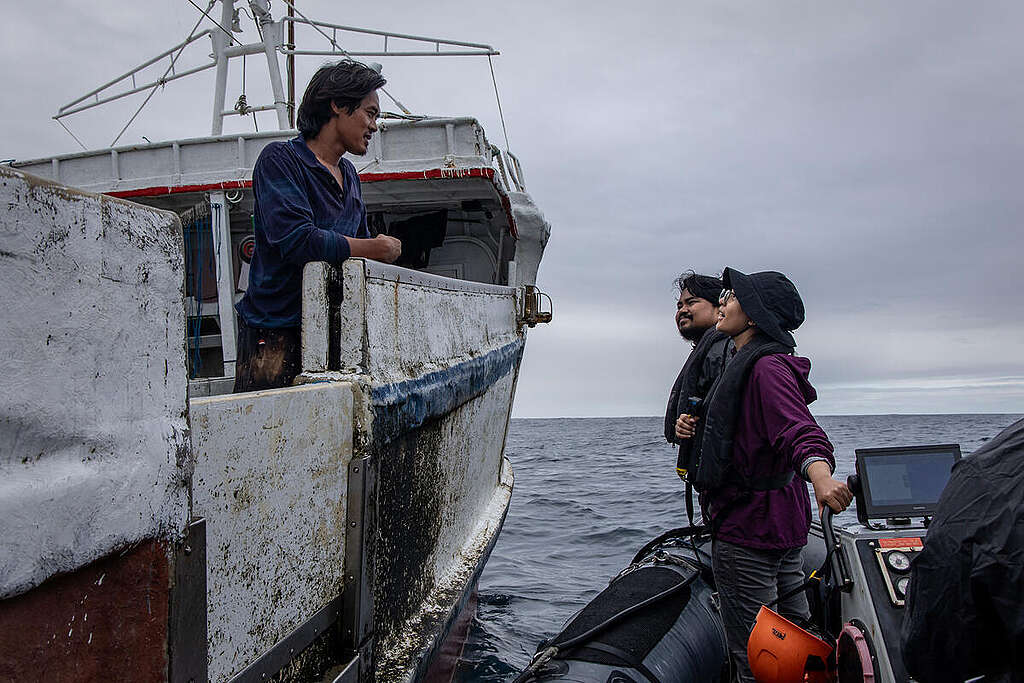
In our brief interaction, Anto shared with us that one of his fellow fishers, "Fahri" (pseudonym), died on board due to acute gastritis a few weeks earlier. One fateful day in June, Fahri felt severe pain on his stomach. He pushed himself to work for at least a week, only to become bedridden the following week. Fahri's friends tried their best to take care of him onboard, but to no avail. He was taken to the shore too late as the ship was so far out in the ocean, with his last breath taken in the middle of nowhere, in the Pacific ocean.
It's hard to imagine what it was like for Fahri at the end. Having to go through so much pain until his last moment without proper medical treatment or any loved ones around; and what must it be like for his parents, learning that their son reportedly died while working out on the high seas and waiting for weeks before seeing his body.
Wi-Fi is for more than just saying "Hi"
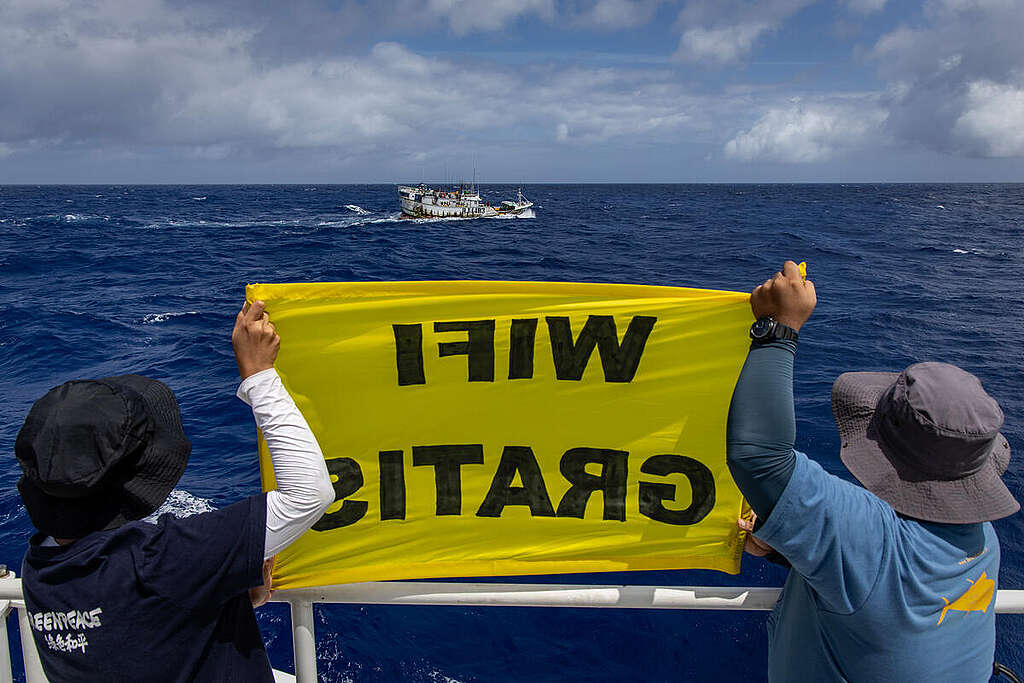
For fishing workers, access to communication is their rights, according to the international labor convention that covers fishers (ILO C-188). Secondly, it enables fishers to be in contact with their unions - an internationally-recognized fundamental labor right. And finally, it's essential for human connection.
© Ulet Ifansasti / Greenpeace
Stories like Rahman, Anto, and Fahri's are part of the reason why Wi-Fi matters so much for those working on distant-water fishing vessels. Throughout their duration at sea, these fishers are completely isolated and unable to contact their families, friends, unions, or governments.
Remember in 2020 when the whole world went into lockdown and many families were separated? Many of us are now quite familiar with just how essential it is to be in connection with other humans, especially when we are going through a challenging time.
Beyond maintaining human connections, being able to connect with the outside world also means that they can make reports regarding labor conditions and fishing activities. As previous investigations from Greenpeace Southeast Asia and East Asia have found, conditions on board foreign-flagged fishing vessels can be brutal. Many fishers reported inadequate food and drinking water, non-decent living spaces, and poor onboard safety measures. Many also said they worked up to 20 hours a day and were not paid, all the while enduring abusive working environments. On top of that, there were also reports of some practices of illegal, unreported and unregulated (IUU) fishing, such as illegal transshipment, the use of non-sustainable fishing gear, or change of vessel names.
So, as you can see, Wi-Fi is important not only for the well-being of the fishers, but also for the accountability of the fishing industry itself.
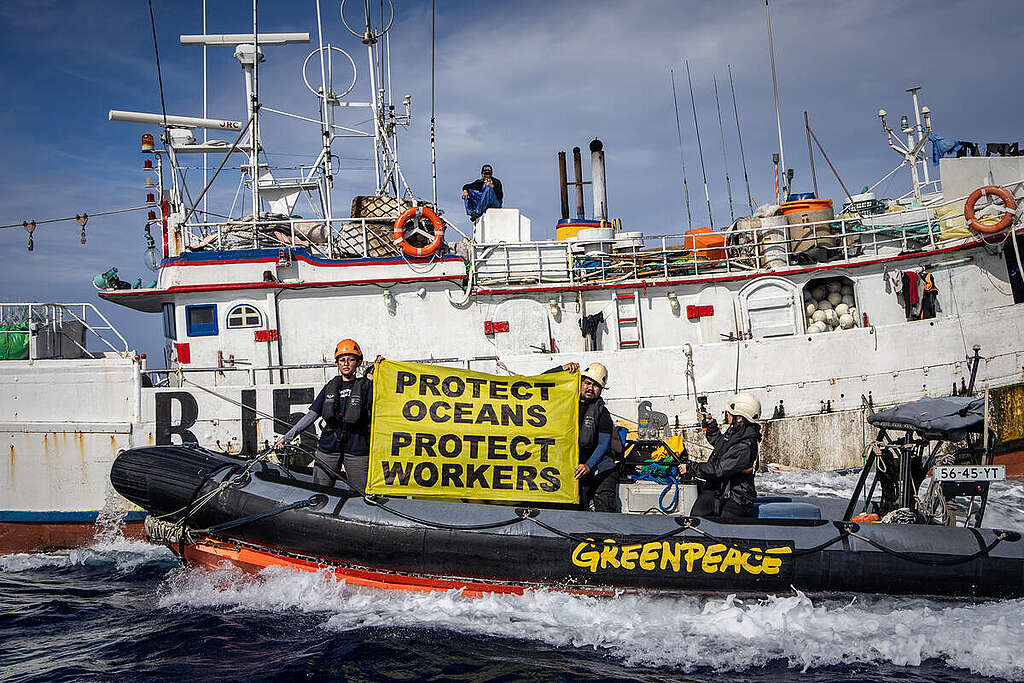
In the International Labour Organization Convention No. 188 (ILO C-188) concerning work in the fishing sector, there is a specific clause about communication. The convention aims at setting the international standards for safety on board fishing vessels. The clause reads:
"All fishers on board shall be given reasonable access to communication facilities, to the extent practicable, at a reasonable cost and not exceeding the full cost to the fishing vessel owner."
"When at sea in these remote parts of the world, in challenging situations, Wi-Fi is not a luxury but a necessary lifeline to the shore. Without free, accessible, and reliable Wi-Fi on board, the high seas and the situation of fishers who work on them will remain hidden from view and thus, from protection," Charli Fritzner, the onboard project lead from Greenpeace USA said.
Wi-Fi Now!
The good news is that there is a growing movement of organisations and people pushing for Wi-Fi provisions on fishing vessels. One of them is the "Wi-Fi Now for Fishers' Rights" campaign established by organizations from the US, Taiwan, and Indonesia consisting of the Indonesian Seafarers Gathering Forum (FOSPI), Global Labor Justice (GLJ), Taiwan Association for Human Rights (TAHR), Stella Maris Kaohsiung, Serve the People Association (SPA), and the Humanity Research Consultancy (HRC).
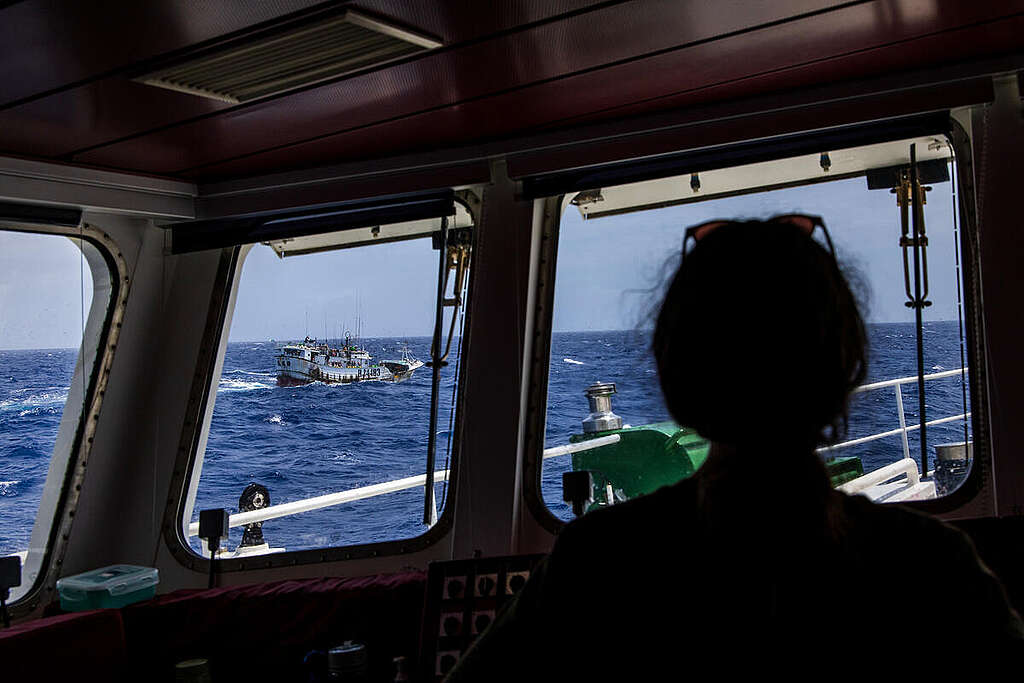
While global efforts are underway, Greenpeace will continue to contribute by doing research and interacting with vessels in international waters. Momentum is building, fishers are organising, and the movement is growing. Seafood companies and industrial fishing practices cannot continue with "business as usual" – the health of our oceans must take precedence especially in the face of the climate crisis. Changes must be made throughout supply chains and it must be made now!
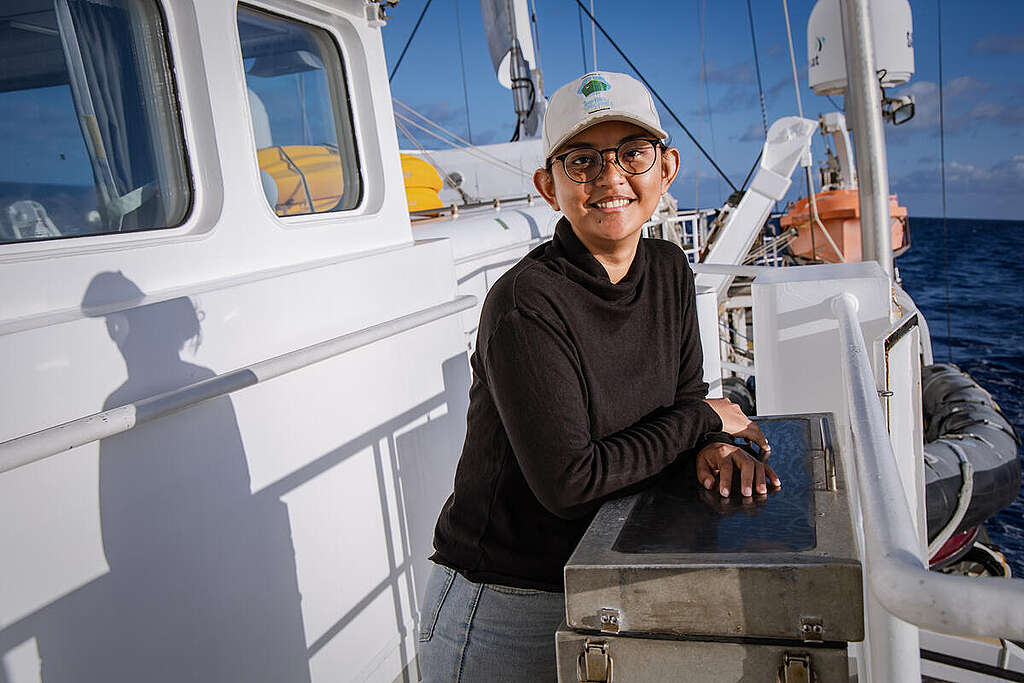
When I arrived back home in early September, I finally had my cat, Tammy, in my embrace again. But even though my body was back in comfortable surroundings, my mind was still wandering in the Pacific ocean. I thought about Rahman and wondered when he would get to hug his baby (who would be a toddler by the time he reached home); and about the many other fishers out at sea who were yearning for interactions with their loved ones. I thought about when will we, as a global community, materialize a fair and just fishing industry. I believe we are getting there. We WILL get there. Eventually.
Tell global seafood trader FCF that it's time to step up for the oceans, marine life, animals, and workers at sea.
Sign our petition to tell seafood traders that it's time to step up for a more sustainable future for our ocean and workers at sea. Because our oceans are life, and a way of life.
Vela Andapita is the Global Communications Coordinator for Beyond Seafood project at Greenpeace Southeast Asia.

